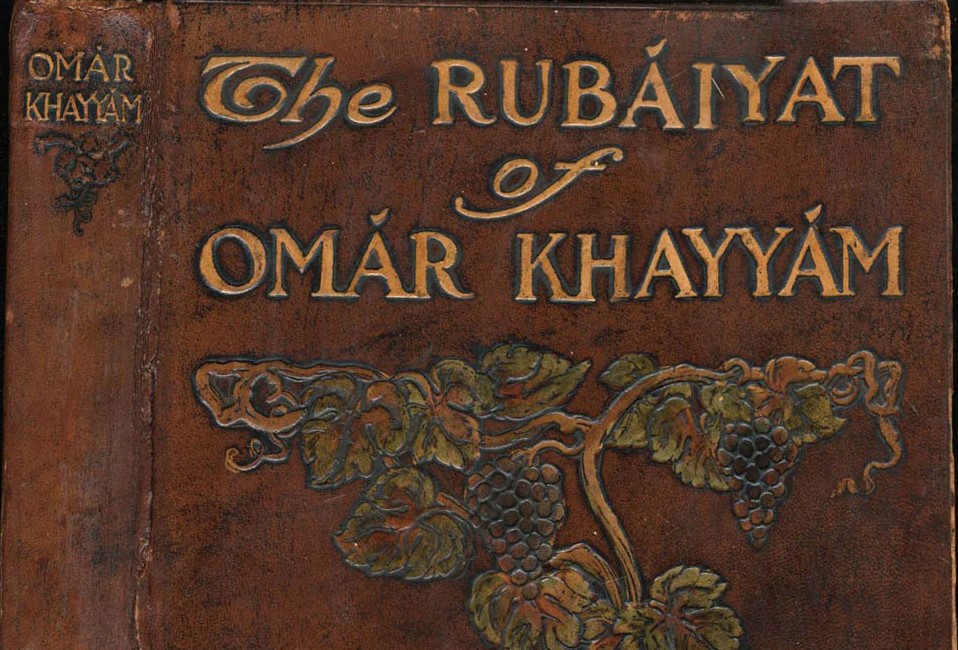The genius of Persian culture: Who is Omer Khayyam?
Iranian astronomer, scientist, poet, scholar and philosopher. His real name is Giyaseddin Ebu'l Feth Bin İbrahim El Khayyam. Omar Khayyam is the founder of the rubaiyat genre in Iranian and eastern literature.

Many associations were established in the name of Khayyam in western countries, and their rubais were translated into all western languages.
He has many inventions and important works in the fields of mathematics, physics, astronomy, and medicine. After Ibn Sina, he was accepted as the greatest scholar raised by the East.
Rubāi is the term for a quatrain, a poem or a verse of a poem consisting of four lines. It refers specifically to a form of Persian poetry, or its derivative form in English and other languages.
He was born on May 18, 1048, in Nishapur, Iran. Omar Khayyam was the son of a tentmaker. Therefore, he took his surname, which means tentmaker in Persian, from his father's profession. Omar Khayyam gained fame as a scholar during his lifetime.
Apart from rational sciences such as mathematics, physics, astronomy and medicine, he was also closely interested in music and poetry. Hayyam, who lived in the period when Iran was under the rule of the Seljuks, visited the big cities of Khorasan, science centers such as Belh, Bukhara, and Merv, and went to Baghdad. He was very close to the rulers of his time, especially the Seljuk Sultan Melikşah and the Karahanlı Şemsülmülk. He was a frequent guest at their palaces and assemblies. According to what Residüddin tells in his work "Cami-üt-Tevarih", Nizamülmülk and Hasan Sabbah were schoolmates and close friends with Ömer Hayyam. Nizamülmülk asked for help from Khayyam to help him in the administration of the state because he was very confident in his knowledge, but he refused this offer because he preferred to stay away from palace intrigues for the rest of his life.
In all the sources written both in his own time and in the following ages, it is written that Omar Khayyam acquired all the knowledge of his age, entered into deep discussions in those fields, and taught fiqh, theology, literature, history, physics, and astronomy.
Khayyam wrote various works in the fields of physics, metaphysics, mathematics, astronomy, and poetry. Among the scientific books he wrote were the interpretation and translation of Ibn Sina's Temcid (Exaltation), On Algebra and Geometry, A Summary in the Field of Physical Sciences, Summary of Knowledge About Being, Formation and Views, The Measure of Wisdom, and The Garden of Minds. His greatest work was the Treatise of Algebra. Ömer Hayyam, whose mathematical knowledge and ability are far beyond his time, made successful studies on equations. Besides, he was the first person to find the binomial expansion and the coefficients in this expansion.
It was the rubais he wrote that determined Omar Khayyam's place in the history of literature and caused him to be remembered as one of the greatest poets of the Islamic world in the following centuries. Omar Khayyam was the founder of the rubai genre in Iranian and eastern literature. His rubais, whose number is estimated to be around two hundred, have been circulating from language to the present day, and have been the works that left their mark on the following ages.
Khayyam used very easy-to-understand, fluent, and clear language while writing his rubais. He was realistic in his poems. He expressed what he experienced and observed. According to him, the most infallible measure was reason and common sense. The man could only reach the truth through reason.
In his poems, he slandered the injustices and absurdities of his time in subtle and cynical language. He chose the themes of his stanzas from themes such as love, wine, the world, human life, and the joy of living. He looked at the main fabrics of human life with a philosophical eye.
For the great poet, the real is the lived; there is no second world beyond the world; man is real as long as he lives; the most unfailing measure is not faith but reason and common sense; man exists with his mind; Therefore, the best measure and the most unfailing guide is the mind, and the truth can only be reached through reason.
In Khayyam's poetry, the injustices, deceptions, and absurdities of his age are reproached with thin, sarcastic, and sarcastic language. The subject of the quatrains; love, wine, the world, human life, the joy of life, and the enjoyment of the temporary world we live in are real actions and behaviors that are closely related to human beings.
Khayyam influenced many poets who came after him and was adopted as the only example in the field of rubai. Many associations were established in the name of Western countries, rubai was translated into all western languages, meanwhile, many times into Turkish under the name of Rubaiyat-i Hayyam, Khayyam's Rubai, Ömer Hayyam and Rubaileri, Quadruples.
He was commemorated as "the star of Khorasan, the genius of Iran and Iraq, the prince of philosophers Omar".
His life ended at the age of 83 in Nishapur, where he was born on December 4, 1131.
Khayyam did not pen much of his work, but he is the unsung hero of many theories and inventions. He made great efforts for the calendar known as the "Jalali Calendar", which he completed on March 21, 1079. While this calendar, which is organized according to the solar year, gives an error one day in 5000 years, the "Gregorian Calendar" we use today gives an error of one day in 3330 years. The names of 18 of the works of Omar Khayyam, who wrote many works in various disciplines, are known.
